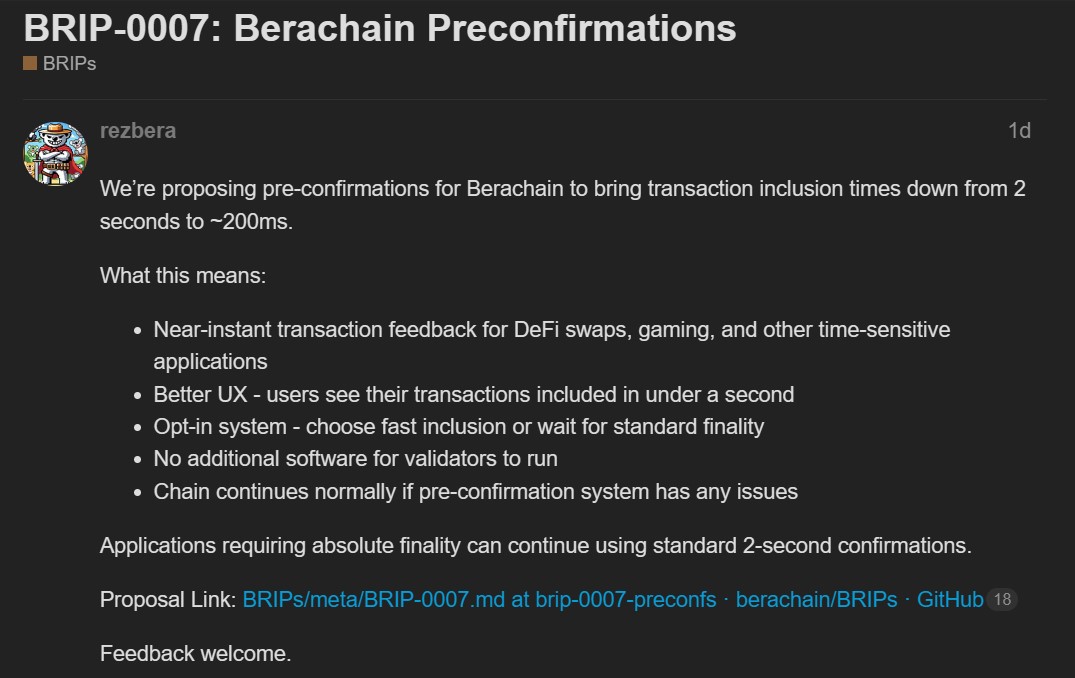
Berachain Aims for Ultra-Fast Blockchains with New Governance Proposal
Berachain introduces a governance proposal designed to dramatically reduce transaction times to 200 milliseconds, joining the competition for real-time blockchains.
A new governance proposal from Berachain aims to reduce transaction inclusion times from two seconds to approximately 200 milliseconds, allowing for near-instant transaction confirmation.
The proposal, titled BRIP-0007: Berachain Preconfirmations, details an optional “fast lane” for users seeking speed without sacrificing security. It introduces a mechanism that enables transactions to appear confirmed in under one second, enhancing the responsiveness of decentralized finance (DeFi) swaps, on-chain gaming, and other latency-sensitive applications akin to traditional Web2 apps.
The preconfirmation layer will not modify the current consensus design of the network; instead, it will add a sequencer that creates small “partial blocks” to provide near real-time feedback while waiting for the final settlement during the standard two-second block cycle.
 Berachain preconfirmations proposal. Source: Berachain
Berachain preconfirmations proposal. Source: Berachain
What preconfirmations bring to Berachain
The introduction of a lightweight sequencer that temporarily validates and broadcasts partial transaction data seeks to mitigate perceived latency. This change allows users to see their transactions included in 200 milliseconds, while finality remains tied to the original two-second schedule, benefitting decentralized exchanges (DEXs) and Web3 games.
Additionally, the proposal underscores the importance of safety; if the sequencer fails to synchronize, Berachain will revert to its default two-second building cycle, ensuring network stability.
Preconfirmations on other blockchain networks
Berachain is not the first to explore preconfirmations; the concept originated in Ethereum research, where developers aimed to offer “soft confirmations” prior to on-chain finalization. Similar near-instant inclusion features have been tested in Ethereum layer-2 networks.
In July, Base implemented Flashblocks on its mainnet, introducing preconfirmations, while a recent update brought these features to the Ethereum mainnet through a new Remote Procedure Call (RPC) from Primev, enabling faster transfers and interactions.
